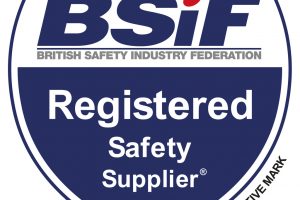The Institution of Occupational Safety & Health (IOSH): Concerns about funding
Concerns about the ‘commercialisation’ of the UK’s health and safety regulator overshadow positive findings from a Government-commissioned review, a leading professional body said today.
Published last week, the triennial review of the Health and Safety Executive (HSE), lead by Martin Temple, concluded that the functions performed by the HSE were still required, and that it should be retained as a non-departmental public body.
The Institution of Occupational Safety and Health (IOSH) welcomed the conclusions and “nearly universal praise” for the regulator. But the chartered body is concerned there is no general recommendation to increase its funding, and that the Government is now seeking to go beyond the limited and qualified recommendations on its reform and commercialisation.
IOSH head of policy and public affairs Richard Jones said: “This review is an overwhelmingly positive endorsement of the work and professionalism of the HSE, which is acknowledged across the world.
“We note the report recognises that though HSE has dealt stoically with severe budget cuts, more are on the way. It also recognises funding pressures on local authorities as co-regulators, the problems with Fees for Intervention, and the ‘near universal agreement’ that HSE should do more on health.
“However, despite highlighting these serious areas for attention, disappointingly the review fails to recommend further funding, other than by commercial means.”
Mr Jones said IOSH was concerned the Government was set to go further than recommended on commercialising HSE, despite a range of questions hanging over the move, including how this may conflict with its regulatory role.
“A further Government response is due later this year and we would urge very serious consideration of the potential downsides to its commercialisation proposals,” he said.
“As this review clearly shows, HSE is an invaluable national asset for business and the economy – it must be fully supported and its core regulatory function assured.”
BOHS, the Chartered Society for Worker Health Protection,
BOHS, the Chartered Society for Worker Health Protection, has welcomed the much anticipated report on the Triennial Review of the Health and Safety Executive (HSE), and its acknowledgement of the value of the HSE’s role and functions, as well as its call for the HSE to seek “new and innovative” interventions to deal with the continuing high levels of work-related ill-health in the UK.
The BOHS is pleased that the report on the Triennial Review notes that, “… there is a real strength and advantage in having a single regulator with a common professional view of work-related health and safety”, and as a result, the Review concluded that the functions of the HSE remain necessary and should be retained as a non-departmental public body.
In its submission to the Review, BOHS pointed out that based on recent HSE statistics, 12,000 people die each year from diseases caused by past exposures at work, predominantly chemicals and dust, and that 1.1 million people who worked during the last year were suffering from an illness they believed to have been caused by or made worse by their current or past work.
BOHS is delighted that Martin Temple, who led the review, highlighted a critical aspect of BOHS’s submission in his report and acknowledged the severity of the situation, noting that, “… it is clear the numbers involved are significantly higher than those who suffer work-related injuries.”
BOHS looks forward to working with the HSE in the future on the following key areas, which were highlighted by the BOHS in its submission as well as being identified for further action in the new report:
• Rebalancing and focusing on the prevention of work-related ill-health – BOHS wholeheartedly supports the Review’s call for HSE to “seek new and innovative ideas for interventions that maximize its impact on the continuing high levels of work-related ill health”.
• Partnering to achieve economies and efficiencies of mutual benefit to all stakeholders – the Review notes HSE’s recent efforts “to reinvigorate its approach to tackling work-related ill-health and ensure it is not seen as the poor relation to safety issues”, in the form of a number of bilateral meetings with key stakeholders, including BOHS, which have led to projects to tackle work-related diseases.
• The HSE Board – BOHS supports the report’s recommendation to review and refresh the remit of the HSE Board. In particular, BOHS believes that the HSE Board could be enhanced by the inclusion of additional technical expertise in occupational hygiene, in support of the Review’s call for innovation in the field of work-related ill-health.
Commenting on the outcome of the Review, BOHS President David O’Malley said, “We are delighted to see the report refer specifically to the challenge of worker ill-health in the UK, given our concerns in recent years at the lack of focus and resource allocated to tackling the burden of occupational disease in the country. We also welcome the clarification that ‘…those who promote wellbeing in the workplace should not allow it to be confused with health and safety requirements’ .
“We at BOHS believe strongly that now is the time for the HSE to rebalance and focus on the prevention of work related ill health, by the application of the principles of occupational hygiene. We look forward to playing our part in supporting the HSE in this regard.”
EEF, The Manufacturers Organisation
EEF, the manufacturers’ organisation has said it agrees wholeheartedly with the main conclusions of the report but believes it was a missed opportunity to look in more depth at establishing a unified health and safety agency (including local authorities) to cover all workplace health and safety issues. The Manufacturers Organisation says it believes there was scope for the report to propose a feasibility study looking at this option.
Terry Woolmer, head of health and safety policy for EEF said: “The report has acknowledged the need for some sort of change to the HSE board structure. It advocates maintenance of the ‘tripartite’ arrangements but recognises that the Board requires members who have the right mix of competences to bring about effective strategic decision making. EEF would have preferred to see more input to HSE board decision making through a stakeholder council, but this is a step in the right direction.”
“The report attaches importance to the need for a constructive relationship between enforcer and the duty-holder and expresses valid concerns about the potential impact of FFI on that relationship. We welcome the report’s recommendations and the need to consider alternative funding models.
“We appreciate that public sector bodies need to be smarter in the way they spend their ‘finite’ resources in the current economic climate and welcome the suggestion of voluntary chargeable inspection services for organisations with mature health and safety management systems who may not appear on the HSE’s current inspection programme. There is a danger however, at some point in the future, that charging for all inspection activities becomes the norm.
“We do think that there has been under-investment in the provision of ‘funding’ for HSE. We know that investment in good health and safety makes business sense and saves businesses money. Equally, investment in HSE is of wider benefit to the UK economy and should in our view form part of the business ‘growth’ agenda. We would have liked to have seen the report target additional HSE resources in key areas, namely:
(a)The provision of an HSE inspector manned advice line,
(b) More pro-active work in Europe to debate OSH EU initiatives,
(c) Pro-active involvement on CEN/CENELEC standard making groups,
(d) Further HSE sponsored research, and
(e) Increased levels of market surveillance to ensure a level playing field in relation to EU product directives.’
British Safety Industry Federation (BSIF)
The BSIF has welcomed the report on the Triennial Review of the Health and Safety Executive (HSE), and its acknowledgement of the value of the HSE’s role and functions remaining to be necessary, with a non-departmental public body (NDPB) still as the most appropriate delivery model.
In its submission to the Review, BSIF stated that “… the functions of the HSE remain not only necessary but essential if we are to maintain and increase achievements in improving occupational safety”. Hence, the acknowledgement that the HSE is to continue operating in the way it currently does comes as positive news and underscores the importance of the HSE in the UK.
Martin Temple, who led the Review highlighted in the report that “…the HSE Board should take a regular overview of how and to what effect HSE resources are deployed in Europe and provide a steer on priorities.” The BSIF welcomes this view, as in its submission, the Federation stated that “…in the interest of the UK, availability of funds for achieving objectives set out to cover EU safety directives and regulations should be reviewed and re-instated”. The BSIF looks forward to seeing how the HSE will review how and to what effect the HSE resources are deployed in Europe, in order to provide a steer on priorities.
Commenting on the outcome of the Review, BSIF CEO David Lummis said: “It is extremely reassuring to know that the functions of the HSE will continue, as the report has highlighted that the skills and knowledge delivered to ensure workers safety are achievable in an increasingly tough commercial environment.”
We look forward to following the progression the HSE makes on the implementation of resources in Europe, with particular reference to PPE standards.”
The Royal Society for the prevention of Accidents (RoSPA)
RoSPA has welcomed the findings of the review.
Having submitted evidence to the Department for Work and Pensions’ (DWP) Triennial Review of the Health and Safety Executive, led by Martin Temple, chair of the EEF, the Royal Society for the Prevention of Accidents is pleased that its conclusions and recommendations mirror many of the key points which the charity included in its own evidence.
RoSPA is particularly in favour of maintaining the HSE, not only as a national enforcement agency, but as the lead body for promoting health safety research, developing standards and guidance, and working with other partners to raise awareness and develop the skills and competences needed to prevent accidents and to safeguard health.
Roger Bibbings, RoSPA’s occupational safety adviser, said: “We are very pleased that the review has come down unequivocally in favour of maintaining the HSE as a non-departmental public body, working at arm’s length from ministers, to regulate work-related health and safety risks to workers and the wider community.
“Our impression is that by listening carefully to representatives of industry and other stakeholders, Temple and his team have not only confirmed the case for preserving the role of the HSE as the lead regulator in the health and safety field, but have also made a number of important recommendations for improving its efficiency and effectiveness.”
The most notable conclusions include:
•An end to the “Fee for Intervention” (FFI) cost recovery scheme which has damaged perceptions of, and relationships with, inspectors
•The development of closer links between the HSE and other government departments and with local authorities
•The need for a new approach to measuring the HSE’s performance and impact
•Recommendations to enhance the effectiveness of the HSE’s board
•Opposition to privatisation of the Health and Safety Laboratory
•Smarter use of new media to reach small and medium enterprises (SMEs)
•Speeding up the enforcement process
•Sharper focus on work-related health damage
•A more active role in the EU.
RoSPA will continue to play its part in helping to take the discussion forward via its National Occupational Safety and Health Committee (NOSHC), focusing on what needs to be done to implement the review’s recommendations. In particular, RoSPA is keen to discuss options for alternative funding streams to support the HSE’s work, and Temple’s proposals for developing the HSE’s commercial activities in land-use planning and in delivering audits for large organisations. Consideration will also be given towards ensuring such activities do not conflict with the HSE’s regulatory independence or compete with similar services currently offered by other providers.
TUC
The TUC welcomed the recommendations of the Triennial Review into the Health and Safety Executive (HSE), which confirms the important role the HSE plays in reducing injury and ill health caused by work.
This review is the fourth to examine the health and safety system since 2010, following the Young and Loftsedt Reports and the “Red-tape” challenge. All have confirmed the need for a robust health and safety system and have concluded that the Health and Safety at Work Act has stood the test of time. The review today also confirms that the current regulatory regime is fit for purpose.
TUC General Secretary Frances O’Grady said: “This is the fourth government-commissioned report in recent years to highlight the benefits that the HSE brings to workers across the UK.
“The past few years have been difficult for the HSE given the cuts to funding and reductions in enforcement activity. We hope that the government will now support the HSE in taking forward the review’s recommendations and give it the resources and political backing it so desperately needs.
“The report is supportive of bringing together unions, employers and government to deal with health and safety issues. We are concerned, however, that the government’s implementation of some of its recommendations could undermine this approach. It is important that unions and employers continue to play an equal role in the way the HSE operates.
“There was huge support from all those who responded to the review for the work of the HSE as a public body. We believe that, given the scale of injury and illness across UK workplaces, the government should not undermine the ability of the HSE to meet that challenge.”
ARCO
Thomas Martin, joint managing director of safety company Arco which submitted evidence for the review said: “Arco broadly welcomes the recommendations published following the Triennial Review of the Health and Safety Executive (HSE). We believe that the HSE must continue to play a valuable role in enforcing health and safety regulation with political impartiality and it should remain as Non-Departmental Public Body. In our submission to the Review, we recommended that outside of the core business of regulation and enforcement, there is a strong case for allowing the HSE to build partnerships with private and voluntary organisations in order to deliver on parts of its mission.
“We are delighted to see that the report concurs with our recommendations saying: ‘there are a number of areas in which HSE can improve delivery and explore options for further commercialisation or delivery through and in partnership with others.’ With our expertise and experience over 130 years of helping to make work a safer place, Arco is well placed to work with the HSE in the delivery of awareness-raising campaign, safety research, consultancy and inspections, leaving the HSE to focus on policy and regulation.”
Arco says its core purpose is to keep people safe at work and the company provides expert advice, training, consultancy and safety solutions to over 110,000 customers across the UK and Ireland through its regional sales offices, forty-two strong trade counter network and on-site centres.






